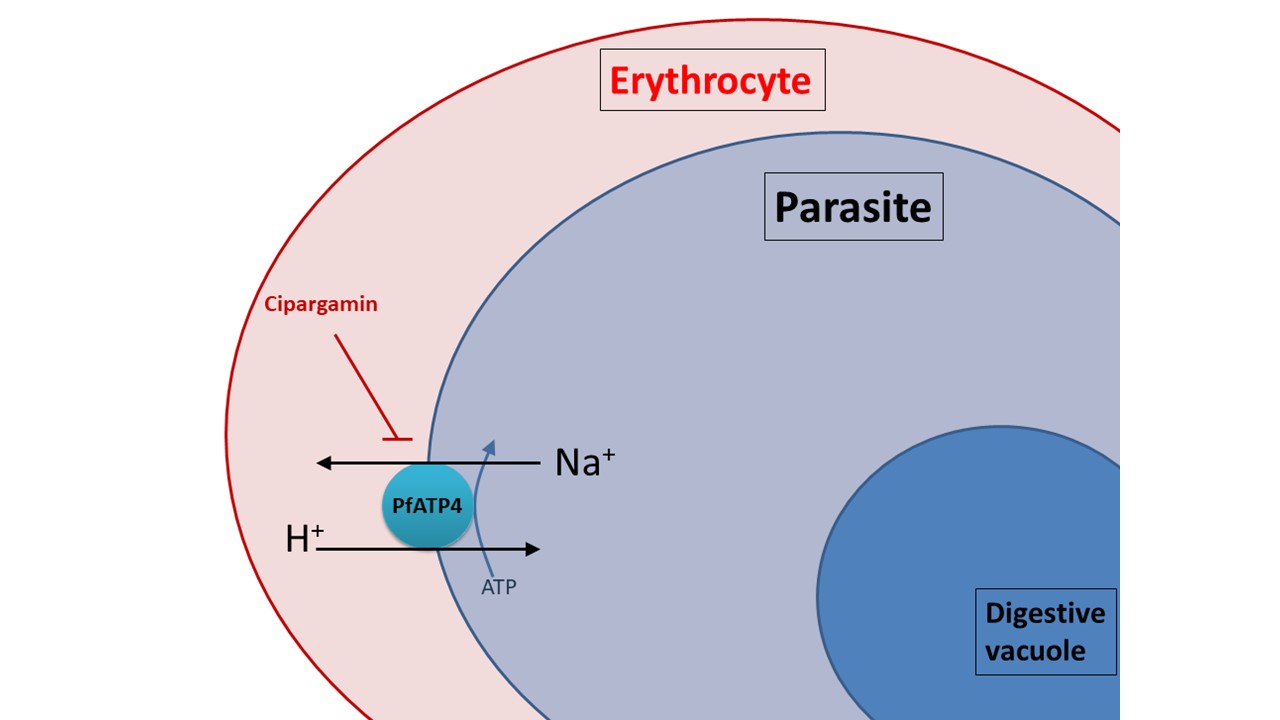Targeting ion transport in apicomplexan parasites with new generation antimalarials
Malaria parasite proteins involved in ion homeostasis show promise as much-needed new drug targets.
Research themes
Project status
Content navigation
About

The intracellular malaria maintains a tight control over its internal ion concentrations while, at the same time, inducing substantial changes in the ion concentration of its host red blood cell. Current work in the lab focuses on understanding the mechanisms by which the intracellular parasite regulates its internal Na+, pH, Cl- and K+.
Recent work in the lab has implicated a particular membrane ion pump, 'ATP4', in the control of the parasite's internal Na+ level. It has also led to the hypothesis that this pump is a target of a range of potential new generation antimalarials, one of which, a drug called cipargamin, is in advanced clinical trials. We are investigating ATP4, both in the malaria parasite and, in collaboration with Giel van Dooren, in the related human parasite, Toxoplasma gondii. We are also working with the Swiss-based Medicines for Malaria Venture and the Open Source Malaria Project, using 'ion assays' developed in the lab to screen potential antimalarial drug candidates.
Students interested in working on this research project should contact Dr Adele Lehane.



